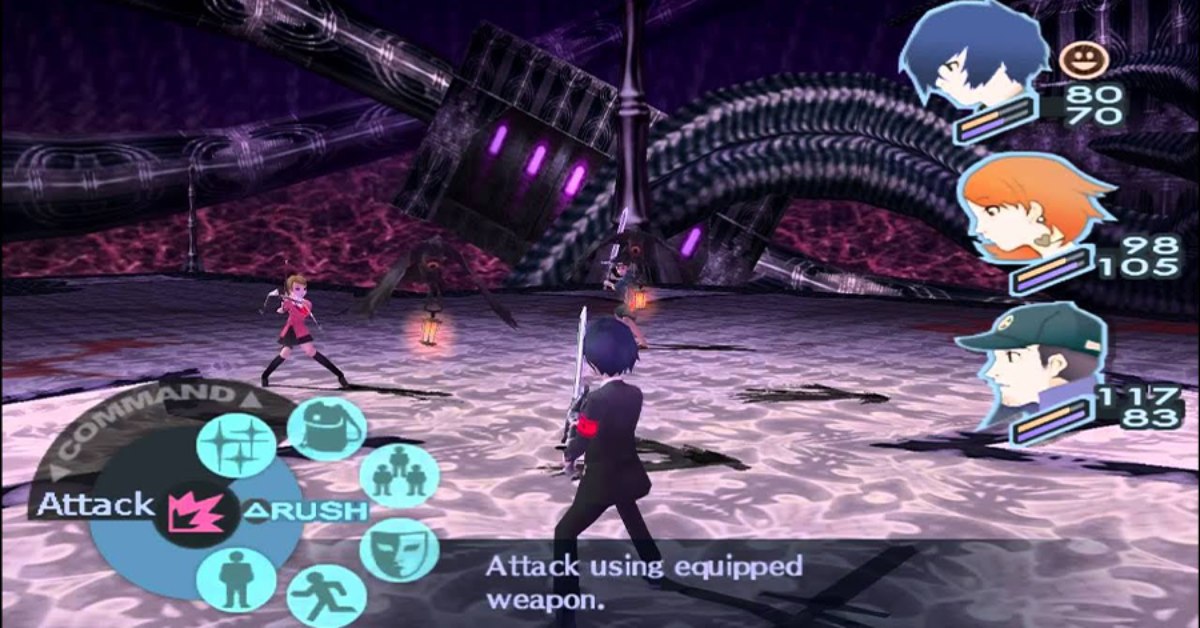
Persona and The Unintended Influence of Game Design
iThrive's teen blogger Eleanor shares a reflection about Persona and how it has influenced her.
Recently, I was introduced to the idea of ancient games and their purpose of training in society. In Egypt, many people played Senet in hopes that they could successfully move through the underworld, and in Greece, many soldiers played war games to ensure that their generals could practice delegating before heading into battle. While these games were also played for fun (particularly Senet, which apparently began as a more recreational game before religious themes came into it), there is a distinct societal purpose behind their creation and play. At first, the idea of games created for an explicit purpose in modern society was relatively novel to me. Then I remembered Persona.
In the spring of 6th grade, I had ventured into the world of the Persona franchise when I learned of Persona 4 Golden. At the time, it was an incredibly well-received game known for its balance between social gameplay and dungeon crawling. On some days the player could work on improving the protagonist's technical and social skills, while on others they could fight through the "Midnight Channel," saving kidnapped victims from their own repressed emotions. When I was first introduced to this game, its theme was very new to me. I was excited to look at myself differently, much like the game encouraged its own characters to and in this way, I was introduced to a more overt way that games instill behavior through example and storytelling.
After uncovering the first story arc in Persona 4 Golden, I began to look at my actions more carefully — did I do something nice for someone else's benefit or my own? Did I really need to say something hurtful to get my point across? These questions almost felt like training to become a better person - while they had often come into play during my normal life before Persona 4 Golden, seeing the characters dealing with the intentions behind their actions forced me to look at mine. I eventually realized that Persona isn't the only franchise that does this either. When I was younger I took extra care to be conscientious of pets after playing Pokémon, and much more recently the discussions old friends of mine had about Undertale brought up topics like pacifism and not going about a situation aggressively by default.
Players are affected by games in a way that is unique from other art forms given the fact that they step into the shoes of the (very often silent) protagonist and experience the world crafted by the developer. However, I hadn't often considered just how deliberate the messages could be when playing games. Of course, since developers are human, their messages are certainly not perfect. Despite still being well-received, Persona 4 has faced some criticism for its handling of certain topics that have raised questions about whether they mishandled their themes in some character interactions. Even a game that executes its themes very well can have blips in its portrayal — meaning, taking everything at face value could cause a player to adopt some of the biases the developers had when creating the game.
While creating for the sake of instilling specific behaviors can be channeled for good, even the most well-intentioned person can share their biases instead of goodwill through their art. By considering games as one of the many tools for catalyzing change, we need to take extra care to not get completely caught up in the views of the not-so-silent protagonist.
 Eleanor Mather is a 17-year-old rising senior currently attending Horace Mann High School in the Bronx. She has enjoyed playing games since playing Pokémon Platinum with her brother and friends and has grown to love discussing and developing them in the past years. She is very excited to contribute her thoughts to the conversation on games as a medium and hopes to encourage others to join in.
Eleanor Mather is a 17-year-old rising senior currently attending Horace Mann High School in the Bronx. She has enjoyed playing games since playing Pokémon Platinum with her brother and friends and has grown to love discussing and developing them in the past years. She is very excited to contribute her thoughts to the conversation on games as a medium and hopes to encourage others to join in. "


